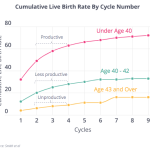Does a Doctor Perform Egg Retrieval for IVF in Georgia?
If you’re exploring in vitro fertilization (IVF) and wondering about the egg retrieval process—especially in Georgia—you’re not alone. It’s a big step, and understanding who does what can make the journey feel less overwhelming. Egg retrieval is a key part of IVF, and yes, doctors are directly involved, but there’s more to the story than just that. Whether you’re in Atlanta, Savannah, or anywhere else in the state, this guide will walk you through the process, answer your burning questions, and give you a clear picture of what to expect. Let’s dive in!
What Is Egg Retrieval, and Why Does It Matter?
Egg retrieval is like the heart of the IVF process. It’s when mature eggs are collected from your ovaries so they can be fertilized in a lab. Without this step, IVF wouldn’t work—it’s how you get the “raw materials” to create an embryo. In Georgia, just like anywhere else, this procedure is done with precision and care, and it’s a doctor who takes the lead.
Imagine your ovaries as little treasure chests. Normally, they release one egg a month, but during IVF, fertility meds help them produce several at once. The goal? To gather as many healthy eggs as possible to boost your chances of success. A doctor uses special tools to unlock those chests and collect the eggs, making it a critical moment in your fertility journey.
Who Performs Egg Retrieval in Georgia?
So, does a doctor do the egg retrieval? Yes, absolutely! In Georgia, this procedure is performed by a reproductive endocrinologist—a fancy term for a fertility specialist who’s trained in hormones and reproduction. These doctors have years of experience and know exactly how to handle this delicate process.
Here’s how it works: the doctor uses a thin needle guided by ultrasound to gently remove eggs from your ovaries. It’s not something a nurse or technician can do—it requires a physician’s skill and expertise. In Georgia, clinics like Emory Reproductive Center in Atlanta or smaller practices in places like Columbus all follow this standard. The doctor is the one in charge, though they work with a team, including nurses and embryologists, to make sure everything goes smoothly.
What Makes Georgia Special for IVF?
Georgia’s a great place for IVF because it’s home to top-notch clinics and skilled doctors. Cities like Atlanta have big names like Reproductive Biology Associates, while rural areas still offer access to qualified specialists. Plus, the state doesn’t have strict laws limiting IVF, so you’ve got flexibility in your options—whether you’re using your own eggs, donor eggs, or even a surrogate.
The Egg Retrieval Process: Step by Step
Curious about what happens during egg retrieval? Let’s break it down into simple steps so you can picture it. This isn’t just a quick in-and-out visit—it’s a carefully planned procedure.
Step 1: Prepping Your Ovaries
Before the doctor can retrieve any eggs, your ovaries need to be ready. You’ll take hormone injections for about 10-14 days to stimulate your ovaries to produce multiple eggs. Think of it like giving your ovaries a pep talk to step up their game! Your doctor will monitor you with ultrasounds and blood tests to see how those eggs are growing.
Step 2: The Trigger Shot
Once your eggs are mature, you’ll get a “trigger shot”—a hormone injection that tells your ovaries it’s time to release the eggs. Timing is everything here. About 36 hours later, you’ll head in for the retrieval. Too early or too late, and the eggs might not be ready.
Step 3: The Big Day
On retrieval day, you’ll go to the clinic or hospital. Here’s what happens:
- You’ll be sedated (not fully asleep, but super relaxed) so you don’t feel pain.
- The doctor inserts an ultrasound probe into your vagina to see your ovaries.
- Using a thin needle attached to the probe, they carefully pull the eggs out of each follicle (the little sacs where eggs grow).
- The whole thing takes about 20-30 minutes.
Step 4: Aftercare
Once it’s done, you’ll rest for an hour or two before heading home. The eggs go straight to the lab, where an embryologist preps them for fertilization. Meanwhile, you might feel some cramping or bloating—totally normal!
✔️ Pro Tip: Bring a comfy pillow and someone to drive you home. You’ll want to take it easy for the rest of the day.
❌ Don’t: Plan a big workout or a busy day right after. Rest is your friend!
Does It Hurt? What to Expect During and After
One of the biggest worries people have is pain. Here’s the good news: because you’re sedated, you won’t feel much during the procedure. Some describe it as a mild pressure, but that’s about it. Afterward, though, you might feel like you’re having a heavy period—cramping, bloating, maybe some spotting. Over-the-counter pain meds like Tylenol usually do the trick.
A 2023 study from the American Society for Reproductive Medicine found that 85% of patients rated their discomfort as mild to moderate, and most were back to normal within 48 hours. In Georgia, doctors make sure you’re comfortable by tailoring the sedation to your needs—another reason they’re the ones doing it!
Quick Poll: How Do You Handle Recovery?
What’s your go-to comfort after a medical procedure?
- A. Netflix and a cozy blanket
- B. A warm bath and tea
- C. Just sleeping it off
Let us know in the comments—it’s fun to see what works for others!
Where in Georgia Can You Get Egg Retrieval Done?
Georgia’s got plenty of options for IVF, from big cities to smaller towns. Here’s a rundown of where you might go:
| Location | Clinic Example | What They Offer |
|---|---|---|
| Atlanta | Emory Reproductive Center | Full IVF services, high success rates |
| Marietta | Reproductive Biology Associates | Egg retrieval, donor programs |
| Savannah | Coastal Fertility Specialists | Personalized care, smaller setting |
| Columbus | Columbus Center for Reproductive | Affordable options, experienced docs |
No matter where you are, the process is the same: a doctor performs the retrieval. Some clinics even offer virtual consults now, so you can start planning from home.
A Hidden Gem: Rural Clinics
While Atlanta gets a lot of attention, don’t sleep on smaller practices. Places like Augusta or Macon have skilled doctors who often provide more one-on-one time. It’s a quieter vibe with the same expertise—perfect if you’re not into the big-city hustle.
How Much Does Egg Retrieval Cost in Georgia?
Let’s talk money. Egg retrieval is part of the IVF package, and costs in Georgia can vary. On average, a full IVF cycle (including retrieval) runs between $12,000 and $25,000. Here’s the breakdown:
- Medications: $3,000-$5,000 (to grow those eggs)
- Retrieval Procedure: $5,000-$7,000 (doctor’s fee, sedation, equipment)
- Lab Work: $2,000-$3,000 (fertilizing and prepping the eggs)
Georgia doesn’t mandate insurance coverage for IVF, so it depends on your plan. Some employers offer partial coverage, but many folks pay out of pocket. Clinics like CNY Fertility in Atlanta keep costs lower (around $5,000-$10,000 per cycle), making it a budget-friendly option.
✔️ Money-Saving Tip: Ask about multi-cycle discounts or financing plans. Some clinics offer refunds if you don’t get pregnant after a few tries.
What’s New in Egg Retrieval for 2025?
IVF tech is always evolving, and 2025 brings some cool updates. In Georgia, doctors are jumping on these trends:
- AI-Guided Ultrasounds: Some clinics now use artificial intelligence to pinpoint follicles more accurately, reducing retrieval time.
- Gentler Sedation: New sedation methods mean less grogginess afterward—great for a quicker recovery.
- Genetic Screening Boost: More couples are pairing egg retrieval with preimplantation genetic testing (PGT) to check embryos for issues before transfer.
A recent report from Fertility and Sterility showed that AI-assisted retrievals increased egg yield by 10% in trials. That’s a game-changer for success rates!
Risks and Realities: What No One Tells You
Egg retrieval is safe, but it’s not risk-free. Here’s what you should know:
- Ovarian Hyperstimulation Syndrome (OHSS): Rare (less than 5% of cases), but it can happen if your ovaries overreact to the meds. Symptoms include severe bloating or pain—call your doctor if it feels off.
- Bleeding or Infection: Super uncommon (about 0.1%), thanks to ultrasound guidance.
- Emotional Rollercoaster: The hormones can mess with your mood. One minute you’re fine, the next you’re crying over a dog commercial.
Georgia doctors are pros at spotting these risks early. They’ll adjust your meds or monitor you closely to keep things smooth.
A Real Story: Sarah’s Experience
Sarah, a 32-year-old from Athens, GA, went through egg retrieval last year. “I was nervous about the needle, but the sedation made it a breeze,” she says. “The hardest part was waiting to hear how many eggs they got—nine, in my case!” Her doctor at a local clinic walked her through every step, which made all the difference.
Can You Do Anything to Boost Egg Retrieval Success?
Yes! While the doctor handles the procedure, you can set the stage for better results. Here’s how:
- Eat Smart: Load up on protein (eggs, fish) and antioxidants (berries, nuts) to support egg quality. A 2024 study in Human Reproduction linked better diets to higher egg yields.
- Stay Hydrated: Water helps your body handle the meds and recover faster.
- Chill Out: Stress can mess with hormones, so try yoga or a good book to relax.
❌ Avoid: Smoking or heavy drinking—it can tank your egg quality and make retrieval tougher.
Mini Quiz: Are You Ready?
Answer these quick questions to see if you’re prepped:
- Are you eating a balanced diet? (Y/N)
- Have you cut back on caffeine? (Y/N)
- Do you have a recovery plan? (Y/N)
If you said “yes” to 2 or more, you’re on the right track!
Egg Retrieval and Beyond: What Happens Next?
After the doctor retrieves your eggs, they don’t just sit there. An embryologist fertilizes them with sperm (yours or a donor’s) in the lab. Then:
- Day 3 or 5 Transfer: The best embryos are transferred to your uterus a few days later.
- Freezing Option: Extra embryos can be frozen for future tries—super common in Georgia clinics.
- Pregnancy Test: About two weeks later, you’ll find out if it worked.
In Georgia, success rates hover around 30-40% per cycle for women under 35, according to the CDC’s latest data. Not bad odds, right?
Why Doctors Matter More Than You Think
Here’s something you won’t find in every article: the doctor’s experience can make or break your retrieval. A skilled reproductive endocrinologist knows how to adjust your meds, time the trigger shot, and navigate tricky ovaries (like if you’ve got PCOS). In Georgia, where clinics range from high-tech hubs to cozy practices, picking a doctor with a solid track record is key.
Take Dr. Andrew Toledo from Reproductive Biology Associates—he’s been called one of Atlanta’s top fertility docs for a reason. His patients rave about his precision during retrievals. It’s not just about the procedure; it’s about the whole plan they craft for you.
Three Things You Haven’t Heard About Egg Retrieval
Most articles stick to the basics, but here are three under-the-radar insights:
- Your Follicle Count Isn’t Everything: Some women freak out if they don’t get 20 eggs, but quality beats quantity. A 2024 study found that even 5-7 high-quality eggs can lead to a healthy pregnancy.
- Weather Might Play a Role: Crazy, right? Research from Emory University suggests that humidity and temperature swings in Georgia could subtly affect egg development. Doctors here tweak protocols to account for it.
- Mental Prep Is Half the Battle: Clinics are starting to offer mindfulness sessions before retrieval. Why? A calm mind can lower stress hormones, potentially improving outcomes.
Your Next Steps: Making It Happen in Georgia
Ready to move forward? Here’s a game plan:
- Find a Clinic: Look for one with great reviews and a doctor you vibe with. Check success rates on the SART website (Society for Assisted Reproductive Technology).
- Ask Questions: At your consult, ask: “How many retrievals do you do a year?” “What’s your approach if I don’t respond well to meds?”
- Plan Your Life: Block off 2-3 weeks for the process—meds, retrieval, recovery. Tell your boss you’ll need a light schedule.
✔️ Bonus Tip: Join a Georgia-based IVF support group online. Real stories from locals can ease your nerves.
Wrapping It Up: You’ve Got This!
Egg retrieval might sound intimidating, but in Georgia, you’re in good hands with skilled doctors who do this every day. From the moment you start your meds to the day you hear how many eggs they got, it’s a team effort—led by a physician who’s got your back. Whether you’re dreaming of a baby now or freezing eggs for later, knowing what’s ahead makes it less scary and more exciting.
So, what’s your next move? Maybe it’s calling a clinic or just talking it over with your partner. Whatever it is, you’re one step closer to your goal. Got a question or a story to share? Drop it below—I’d love to hear from you!





